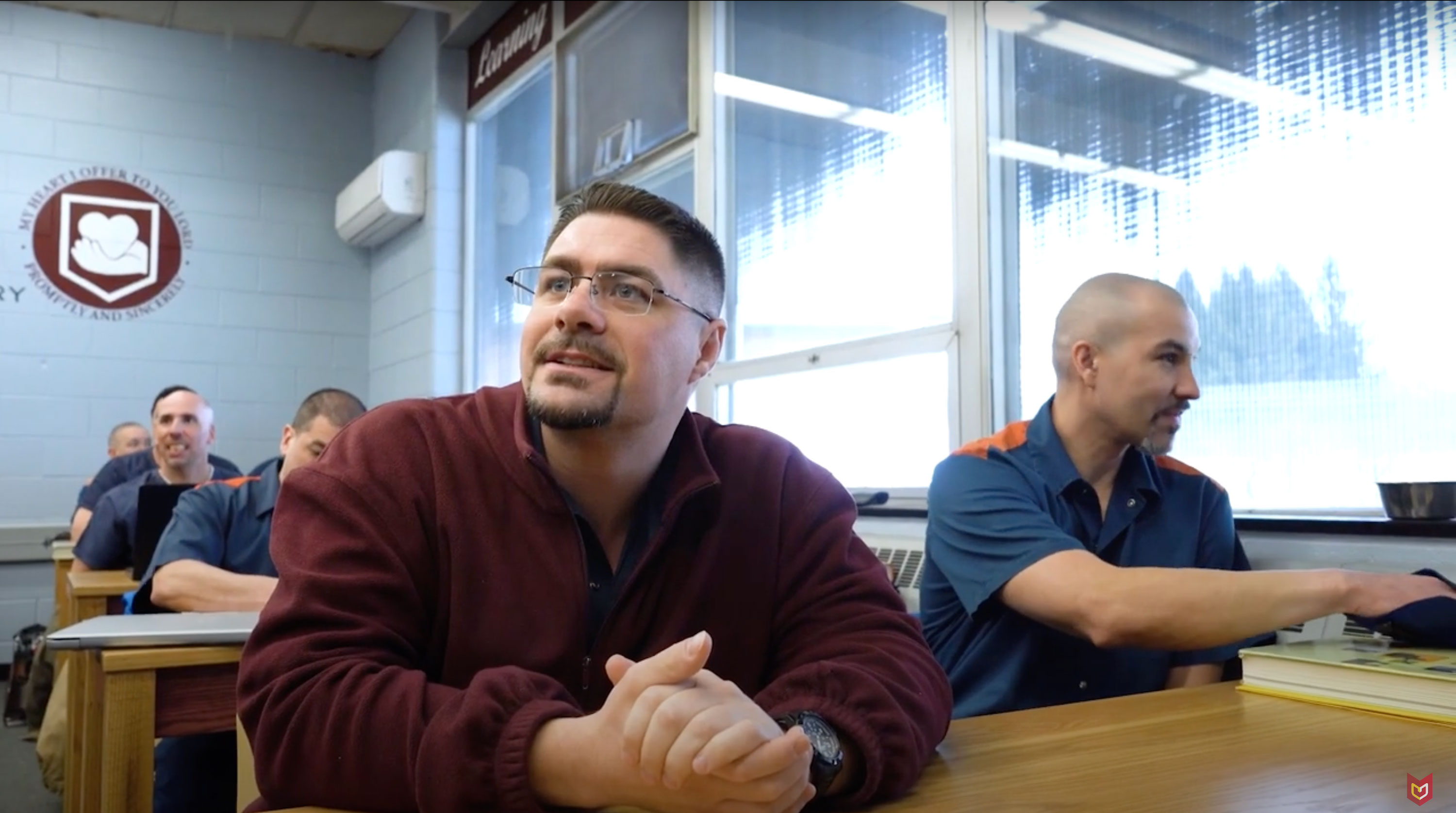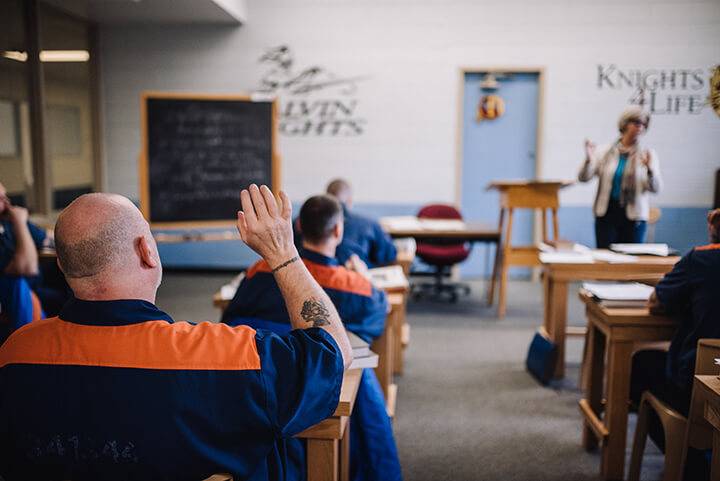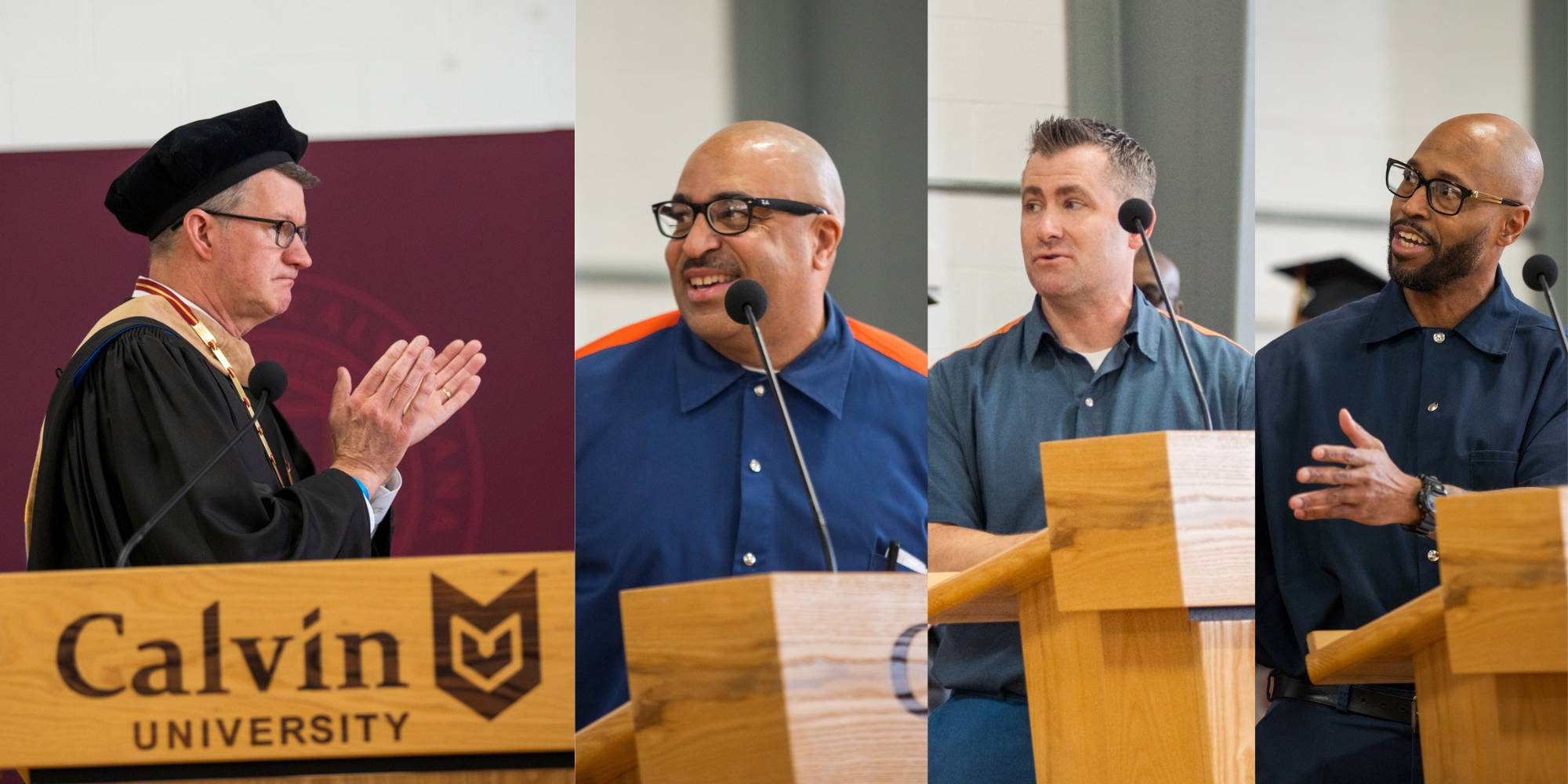Students currently enrolled
Bachelors degrees granted
Overall GPA for CPI students in Summer 2025 semester


CPI's Story and Purpose
Though the Calvin Prison Initiative launched with its first cohort in 2015, it all started with a 2005 seminary class visit to Louisiana State Penitentiary.
Through our program, we hope to challenge and inspire graduates to act as agents of renewal in their communities both inside and outside of the prison walls.
Calvin University and Calvin Theological Seminary, in partnership with the Michigan Department of Corrections (MDOC), offer this course of study for prisoners in the Michigan prison system. Each year 25 students from prisons around Michigan are selected for this program.
The MDOC agrees to transfer students to Handlon Correctional Facility (MTU) in Ionia, MI, where they will remain while they are Calvin students. The MDOC arranges for classroom and library space, and facilitates the students’ schedules so they can be in class and have time to study each day.
The enrolled students do not pay the cost of tuition, textbooks, or computers. These costs are covered by the Calvin Prison Initiative, which is funded through donations and grants.
Students take a robust set of liberal arts core courses, such as Oral Rhetoric, Principles and Perspectives, and Fundamental Questions in Philosophy, and Mathematics in a Contemporary World alongside program courses across two majors to fill out an intensive five-year bachelor's degree program.
As students progress through the Calvin Prison Initiative program, they receive two certificates, an associate’s degree, and a bachelor’s degree with a double major in Faith and Community Leadership and Human Services. At each of these program milestones, student investment and GPA is assessed to determine continued involvement in the program.
In order to apply for the Calvin Prison Initiative, students must first be recommended by the facility where they currently reside. It is our hope that the Principals will identify and recommend prisoners who are a good fit for the program. Applications will be distributed to candidates who have been recommended by their facility and who meeting the following criteria:
- Have a GED or high school diploma.
- 7 years until your first eligibility for parole, as of 2/1/22. Lifers are welcomed.
- Possess high moral character and a desire to study and serve others.
- Meet conduct requirements set by the MDOC.
Prisoners interested in the Calvin Prison Initiative should talk to their facility's school principal.
Upcoming Events
Our Mission
The mission of the Calvin Prison Initiative is to provide a Christian liberal arts education to inmates in the MDOC. Each year 20 students from prisons around Michigan are selected and enrolled in the five year program, through which they earn a Bachelor's Degree from Calvin University. They complete the core requirements for adult learners and major in Faith and Community Leadership.
Our Vision
The vision of the Calvin Prison Initiative is to provide education to adult learners in prison by equipping them with the knowledge and skills required to be community leaders. Our hope is that through this endeavor, not only will lives regain their hope, but prison culture will be transformed, and justice there will become not merely retributive, but restorative. Studies show that prison education programs significantly lower rates of inmate violence and reduce the likelihood of recidivism once an individual is released from prison.










